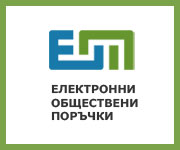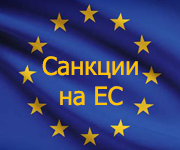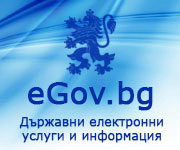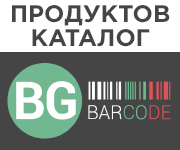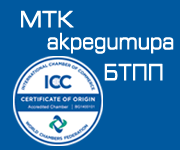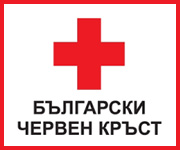Назад
Bulgarian Govt Plans New Investment Incentives, Experts Question Them
-
Bulgarian Govt Plans New Investment Incentives, Experts Question Them

Bulgaria's government is mulling the introduction of new incentives for foreign investors, including measures to stimulate exactly the creation of new jobs, Borislav Stefanov, head of the InvestBulgaria Agency, announced at the "Bulgaria: Business UP" conference."Financial stimuli for investments in large projects that some other countries in Bulgaria's region do offer can be very beneficial for Bulgaria," Stefanov told the participants in the conference in a discussion panel entitled "State of Investment: Government Incentives".Stefanov pointed out that under Bulgaria's Investment Encouragement Act, it is primarily industrial and hi-tech projects in six sectors that enjoy incentives on part of the Bulgarian government, with only projects worth over BGN 100 M and creating at least 200 jobs being "priority projects".In his words, Bulgaria should introduce investment incentives similar to Serbia's, where investors get government subsidies for each new job that they create, ranging from EUR 2000 to EUR 10 000, depending on the economic sector.This proposal, however, was criticized by another participant in the panel, Tsvetan Simeonov, the chair of the Bulgarian Chamber of Commerce and Industry (BCCI), who stated that government subsidies for new jobs in fact serve to encourage unsustainable investments.Simeonov declared the view of the BCCI that Bulgaria must focus on creating "general attractiveness" for foreign and domestic investors, meaning an overall favorable environment, without focusing on concrete state stimuli and involvement in private sector investments.In his words, citing a BCCI survey among 700 firms, foreign investors value most of all Bulgaria's geographic position, macroeconomic stability, and low taxes."The myth that Bulgaria has highly qualified labor resources is, however, being debunked. In fact, businesses now have to pay twice for the same thing – once they pay taxes that are spent by the state on education, and a second time they have to pay for training their new employees that came out of the same education system," Simeonov explained mentioning also the slow administrative services, and the lack of e-government as key investment weaknesses for Bulgaria.At the same time, he noted that businesses, foreign investors and domestic companies alike, in Bulgaria are not generally pessimistic about the prospects of the Bulgarian economy, with 57% of the BCCI firms expecting better economic performance in 2012.Simeonov also criticized the Bulgarian government for failing to look at new markets and diversify Bulgaria's foreign trade, which is now primarily focused on the EU and Euro Area countries."Bulgaria's highly qualified labor force indeed is more or less a myth," agreed Isken Angelov, a department head at Bulgaria's Labor and Social Policy Ministry, who also spoke in the same discussion panel. He did note, however, that Bulgaria's percentage of persons with higher education is 27%, which is roughly the same as the EU average of 33%.Dr. Mitko Vasilev, Chair of the Bulgarian-German Chamber of Commerce and Industry, another speaker in the panel, focused on Bulgaria's trade with Germany and the German investments in Bulgaria."Bulgaria's trade with Germany amounted to the record EUR 4.5 B in 2011. Germany is both Bulgaria's number one trading partner, and a strategic investor. Bulgaria's exports are closing the gap rapidly, catching up with the German imports," Vasilev explained.He did point out, however, that while the Bulgarian-German trade is booming, the German investments in Bulgaria have collapsed since 2009.Vasilev said that most of the 460 companies that are members of the Bulgarian-German Chamber of Commerce and Industry believe that Bulgaria's greatest disadvantages with respect to attracting investors are the inefficient governance, corruption, weaknesses in the judiciary, lack of reforms in education and health care and bad infrastructure."While the Bulgarian state administration thinks the glass is half full, to us it is half empty," declared the last panelist in the discussion panel Plamen Stoykov, Chair of the Board of the Alliance for European Integration, a NGO.Stoykov urged the creation of Spanish-type special economic zones in Bulgaria, the participation of Bulgarian business in EU's Eastern Partnership program, especially with respect to investments in Georgia and Moldova, as well as Bulgaria's closer integration with the economy of Turkey, and an active question for investments from the Muslim and Arab world.The First International Investment Conference "Bulgaria: Business Up" started in the Bulgarian capital Sofia on Friday."Bulgaria: Business UP" is a new initiative designed to analyze and promote Bulgaria's advantages as a foreign investment destination.The goal of the "Bulgaria: Business UP" investment conference is to present to the international business community the highly favorable investment climate in Bulgaria as well as the variety of opportunities for successful and sustainable business that the country has to offer."Bulgaria: Business UP" is organized by Novinite.com (Sofia News Agency), the largest Bularian English-language media, and Novinite.bg, a Bulgarian-language news website, together with the InvestBulgaria Agency.
Линк

 1 USD =
1 USD =  1 GBP =
1 GBP =  1 CHF =
1 CHF =  ISO 9001:2015
ISO 9001:2015



